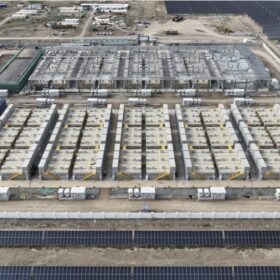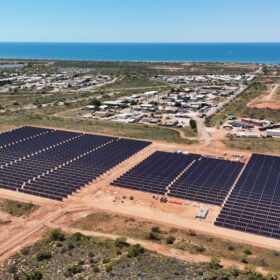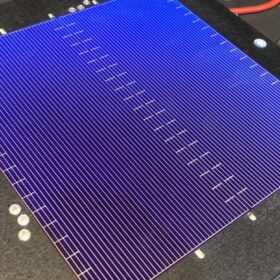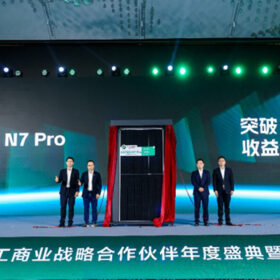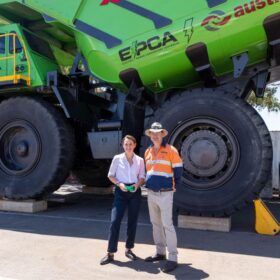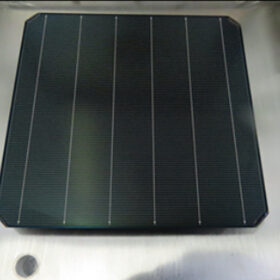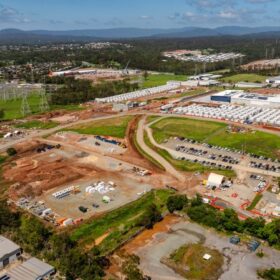China connects world’s largest vanadium flow battery project
The GWh-scale long-duration energy storage project is expected to reduce curtailment in Xinjiang, a region of China with high solar and wind generation, and transmission bottlenecks. The flow battery installation is co-located with a PV plant.
Pacific Energy advances plans to power remote WA town with renewables
Plans to generate up to 80% of the Western Australia coastal town of Exmouth’s power from renewable energy sources are progressing well with all 16,700 PV panels installed at a new 9.6 MW solar farm.
UNSW research offers guidance for more robust TOPCon solar cells
UNSW researchers developed an experimentally validated model linking UV-induced degradation in TOPCon solar cells to hydrogen transport, charge trapping, and permanent structural changes in the passivation stack. They show that thicker aluminum oxide layers significantly improve UV resilience by limiting hydrogen migration, offering clear guidance for more robust TOPCon designs.
Astronergy launches 670 W TOPCon solar module with 24.9% efficiency
China’s Astronergy says its ASTRO N7 Pro module targets utility-scale PV plants and commercial rooftops, offering quarter-cell architecture, bifacial gains, and a 30-year performance guarantee.
WA launches $9 million funding round open for clean energy projects
The Western Australian government has opened a new round of funding under its $37 million Clean Energy Future Fund with $9 million available to back “practical” clean energy projects that help diversify and decarbonise the state’s economy.
Rising silver prices drive China’s Longi shift to copper-metallised solar cells
China’s Longi says it will begin mass production of base-metal PV modules in the second quarter of 2026 as rising silver prices intensify pressure to reduce metallisation costs.
New process achieves 97% silver recovery from end-of-life solar panels
University of Newcastle researchers have developed a new separation technique that employs the same crushing and flotation principles used in mineral processing to recover more than 97% of silver from end-of-life solar panels.
Key transmission project reaches major construction milestone
Australia’s largest energy transmission project has reached a new milestone with the last of more than 1,500 steel towers constructed along the 700-kilometre New South Wales stretch of the EnergyConnect development that links the state’s energy grid with those in Victoria and South Australia.
Trina Solar posts new milestones for tandem efficiency, module power
Trina Solar says new certified results in perovskite-crystalline silicon tandem cells and modules demonstrate progress toward industrial-scale next-generation PV.
China commissions world’s largest open-sea offshore solar project
China has brought a 1 GW offshore solar power plant online off the coast of Dongying, Shandong province, combining PV with energy storage and aquaculture in what is now the world’s largest open-sea solar project in commercial operation.
